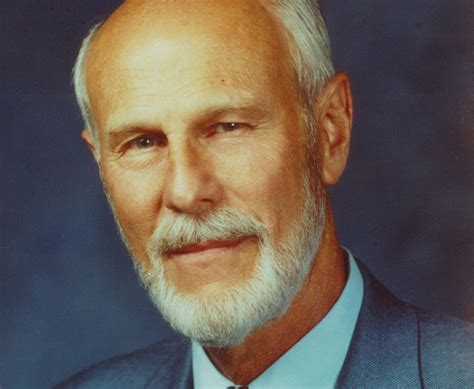A Quote by Andrew Greeley
The kernel is the belief that God is love and, in Catholicism, God's love is present in the world. It is in the sacraments, in the Eucharist, in our families, in our friends, in our neighborhood, and forgiveness in the touch of a friendly hand, in a rediscovered love God is there.
Related Quotes
God’s love sets us free from the need to seek approval. Knowing that we are loved by God, accepted by God, approved by God, and that we are new creations in Christ empowers us to reject self-rejection and embrace a healthy self-love. Being secure in God’s love for us, our love for Him, and our love for ourselves, prepares us to fulfill the second greatest commandment: To love our neighbor as ourselves.
Loving a holy God is beyond our moral power. The only kind of God we can love by our sinful nature is an unholy god, an idol made by our own hands. Unless we are born of the Spirit of God, unless God sheds His holy love in our hearts, unless He stoops in His grace to change our hearts, we will not love Him... To love a holy God requires grace, grace strong enough to pierce our hardened hearts and awaken our moribund souls.
Why pray? Evidently, God likes to be asked. God certainly does not need our wisdom or our knowledge, nor even the information contained in our prayers ("your Father knows what you need before you ask him"). But by inviting us into the partnership of creation, God also invites us into relationship. God is love, said the apostle John. God does not merely have love or feel love. God is love and cannot not love. As such, God yearns for relationship with the creatures made in his image.
Trusting God's grace means trusting God's love for us rather than our love for God. [...] Therefore our prayers should consist mainly of rousing our awareness of God's love for us rather than trying to rouse God's awareness of our love for him, like the priests of Baal on Mount Carmel (1 Kings 18:26-29).
Man depends on God for all things: God depends on man for one. Without man's love God does not exist as God, only as creator, and love is the one thing no one, not even God himself, can command. It is a free gift or it is nothing. And it is most itself, most free, when it is offered in spite of suffering, of injustice, and of death . . . The justification of the injustice of the universe is not our blind acceptance of God's inexplicable will, nor our trust in God's love, his dark and incomprehensible love, for us, but our human love, notwithstanding anything, for him.
The Savior’s words are simple, yet their meaning is profound and deeply significant. We are to love God and to love and care for our neighbors as ourselves. Imagine what good we can do in the world if we all join together, united as followers of Christ, anxiously and busily responding to the needs of others and serving those around us — our families, our friends, our neighbors, our fellow citizens.
The unbreakable bond between love of God and love of neighbor is emphasized. One is so closely connected to the other that to say that we love God becomes a lie if we are closed to our neighbor or hate him altogether. Saint John's words should rather be interpreted to mean that love of neighbor is a path that leads to the encounter with God, and that closing our eyes to our neighbor also blinds us to God.
In the dominant Western religious system, the love of God is essentially the same as the belief in God, in God’s existence, God’s justice, God’s love. The love of God is essentially a thought experience. In the Eastern religions and in mysticism, the love of God is an intense feeling experience of oneness, inseparably linked with the expression of this love in every act of living.
What we would like to do is change the world - make it a little simpler for people to feed, clothe, and shelter themselves as God intended for them to do....We can, to a certain extent, change the world; we can work for the oasis, the little cell of joy and peace in a harried world. We can throw our pebble in the pond and be confident that its ever widening circle will reach around the world. We repeat, there is nothing that we can do but love, and, dear God, please enlarge our hearts to love each other, to love our neighbor, to love our enemy as well as our friend.
The commandment of God is, that we love Our Lord in all our heart, in all our soul, in all our thought. In all our heart; that is, in all our understanding without erring. In all our soul; that is, in all our will without gainsaying. In all our their ought; that is, that we think on Him without forgetting. In this manner is very love and true, that is work of man's will. For love is a willful stirring of our thoughts unto God, so that it receive nothing that is against the love of Jesus Christ, and therewith that it be lasting in sweetness of devotion; and that is the perfection of this life.
There are two gods. The god our teachers teach us about, and the God who teaches us. The god about whom people usually talk, and the God who talks to us. The god we learn to fear, and the God who speaks to us of mercy. The god who is somewhere up on high, and the God who is here in our daily lives. The god who demands punishment, and the God who forgives us our trespasses. The god who threatens us with the torments of Hell, and the God who shows us the true path.
There are two gods. A god who casts us off because of our sins, and a God who calls to us with His love.
Do we get what we want? Yes, we get what we want. God is that
loving. If we want isolation, despair, and the right to be our own
god, God graciously grants us that option. If we insist on using our
God-given pwer to make the world in our image, God allows us that
freedom; we have the kind of license to do that.that's how love
works. It cant be forced, manipulated, or coerced. It always leaves
room for the other to decide. God says yes, we can have what we want,
because love wins.
I believe God loves the world through us - through you and through me. We use Mother Teresa's name; it is only a name, but we are real co-workers and carriers of His love. Today God loves the world through us. Especially in times like these when people are trying to make God "was," it is you and I, by our love, by the purity of our lives, by our compassion, who prove to the world that God "is."
God's unfailing love for us is an objective fact affirmed over and over in the Scriptures. It is true whether we believe it or not. Our doubts do not destroy God's love, nor does our faith create it. It originates in the very nature of God, who is love, and it flows to us through our union with His beloved Son.






































